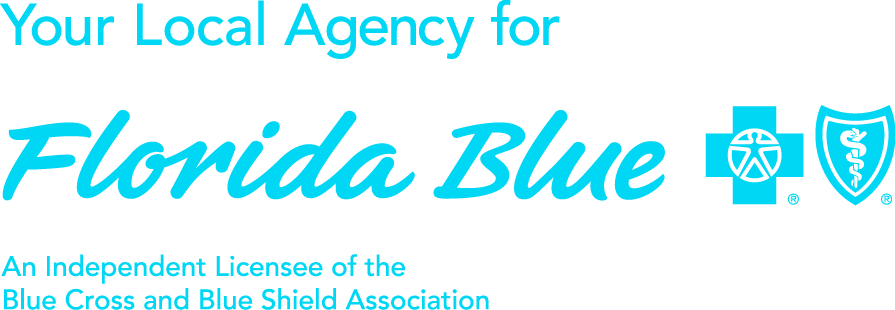Life Insurance Yes You Do Need it

Who Needs Life Insurance?
If people in your life rely on you financially, life insurance can help support them when you’re gone.
Nerd Wallet
The question of who needs life insurance nags at many of us the moment we hear it.
A plan that pays out a sum of money when we die? Sounds like a nice thing to have. But do you need life insurance if you don’t believe you’ll die anytime soon?
There is rarely a one-size-fits-all explainer for whether you need life insurance. But your best bet is to review the basics of life insurance as well as the various situations that may apply to you.
Do I need life insurance?
The quickest way to know whether you need life insurance is to ask yourself one question: Would your death have a financial impact on the people in your life?
If the answer is yes, then you may want to consider life insurance.
Life insurance is a contract between you and an insurance company. You pay insurance premiums in exchange for coverage. If you die while the policy is in effect, the insurer pays out a death benefit to your beneficiaries. In most cases, this payout is equal to the face amount of the policy — so if you have a $500,000 policy, your beneficiaries will receive $500,000.
Life insurance beneficiaries — who could be your spouse or dependents, for example — can use the money to cover their financial needs, whether that’s paying household expenses or covering debts.
Who needs life insurance?
Here are a few examples of people who may need life insurance coverage.
Breadwinners
If your spouse or partner relies on your income to survive, your death could leave them without a way to support themselves. The payout for a life insurance policy can help them cover living expenses and pay off debts like a mortgage so they can maintain the lifestyle they’ve become accustomed to.
Stay-at-home parents or spouses
Even if you don’t earn a traditional salary, you may still need coverage. Stay-at-home parents and spouses provide services that can be costly to replace, such as cleaning, cooking and child care. A life insurance payout can help your partner cover the costs of these services during a difficult time.
Parents or grandparents with dependents
Minor children, unable to provide for themselves, could be put at a major disadvantage if your income disappeared. The same is true if you help cover college costs or provide support for someone with a disability. A life insurance policy can help cover these costs during the years that your dependents rely on you.
» MORE: How and why to set up a life insurance trust for your children
Small-business owners
Your business might struggle if you were to die, especially if you’re integral to its daily operations. A life insurance payout can help your business partners or heirs cover a variety of expenses, such as buying out your share of the company, covering office rent and employing additional help in your absence.
People who want to cover their final expenses
According to the National Funeral Directors Association, the median cost of a funeral with viewing and burial is $7,848. Depending on your wishes for your funeral, it could cost more. With a burial life insurance policy, you could pay your own way, so to speak, keeping the burden off those tasked with executing your final wishes.
» MORE: Best burial insurance companies
Co-signers or co-owners of debt
In most cases, debt does not pass to other people. However, if another person co-owns or co-signs the debt, they could be left holding the bill. Spouses in community property states such as California and Texas may also be responsible for outstanding debts, even if they’re not co-owners or co-signers. You can use life insurance to cover your debts if other people would be responsible for them, helping to pay them off in your absence.
Who doesn’t need life insurance?
If no one in your life would be financially burdened by your death, you can likely put off buying a life insurance policy. For now, you may find that saving and investing your money in other assets is a better move.
Remember that the younger and healthier you are, the more affordable life insurance is. If you see major life changes on the horizon, such as marriage or children, it may be worth exploring your options to lock in a good price at the right time. It’s a good idea to compare life insurance quotes from a range of companies to get the best possible coverage at the lowest price.
» MORE: Average life insurance rates
What type of life insurance do I need?
Typically, life insurance falls into two categories:
-
Term life insurance is temporary — it lasts a set number of years, such as five, 10 or 20.
-
Permanent life insurance typically covers the insured person until the end of their life and includes a cash value component.
Both types of life insurance come in different forms, with different benefits and levels of coverage.
» MORE: Term vs. whole life insurance: Difference, pros and cons
Term life insurance
Generally speaking, term life insurance is the more affordable and flexible option, and thus it's the better choice for most people. You can tailor term life insurance to cover the years of your life when your death would most affect your loved ones and then reassess when they are able to support themselves.
Permanent life insurance
There are some situations in which permanent life insurance makes more sense, particularly if you want the policy to pay out regardless of when you die. Types of permanent policies include whole life and universal life. Whole life insurance is the most common type of permanent coverage, offering fixed premiums and guaranteed cash value growth. Universal life insurance is more flexible, offering adjustable premiums and death benefits.
How much life insurance do you need?
The amount of coverage you get depends on the type of financial obligation you’re covering. Use our calculator to find out how much life insurance you need.
What about life insurance through work?
You may be able to get life insurance through your employer, known as group life insurance. If your employer offers this coverage for free as a benefit, there’s little reason not to accept it, even if the coverage isn’t as robust as you would like.
You can also buy supplemental life insurance to go along with your group life policy. But you may want to shop around to see whether the supplemental life insurance policies you can buy through your employer are a better deal than what you could purchase on your own.
Your group life plan may not be enough to cover all your needs. Review what your employer offers and what you can buy in addition to that policy, and decide whether you want to combine that insurance with your own plan. Remember that you may not be able to take your group policy with you if you leave your job.
About the author: Eric is a former insurance writer at NerdWallet.
‹ Back



 Elliot Glass has been a leader in the insurance industry since 2012. His experience and reputation enable him to best serve his valued clients by understanding their individual needs and offering common-sense solutions. This process saves time, money and provides peace of mind for you and your family.
Elliot Glass has been a leader in the insurance industry since 2012. His experience and reputation enable him to best serve his valued clients by understanding their individual needs and offering common-sense solutions. This process saves time, money and provides peace of mind for you and your family.
.png)